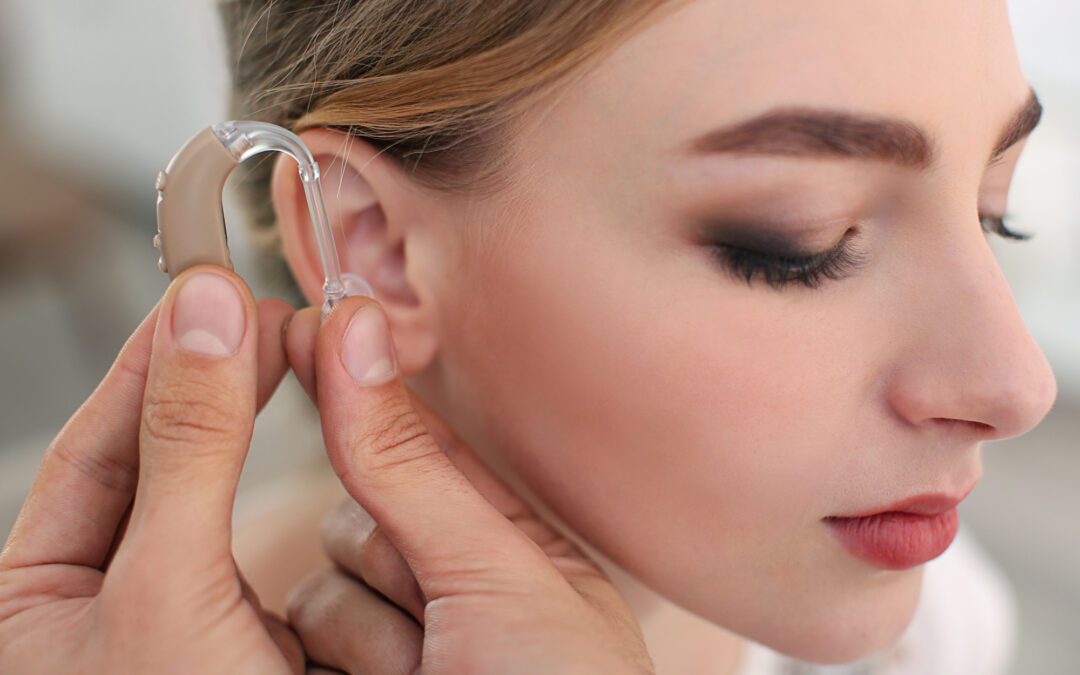This content has been archived. It may no longer be relevant
Hearing is one of the primary ways we connect with those around us and is why it is so important to keep our hearing healthy where we can. Hearing loss is not easy to imagine if you have not experienced it yourself, but can lead to isolation and withdrawal from many pleasurable activities. While not all types of hearing loss can be prevented, there are steps anyone can take to lower the risk of age-related or noise-related hearing loss. It is never too early, or too late, to start taking measures to protect your hearing, adopting a healthy lifestyle, and following a doctor’s advice.
The healthier you are overall, the better hearing loss can be prevented. You can start by regularly seeing your physician. Seeing a doctor is essential to keep your blood pressure and cardiac health managed. Fragile mechanisms that help you hear can be damaged by high blood pressure and heart disease. If you have diabetes, research has shown that you are twice as likely to have hearing loss. This can damage the cells in your inner ears in a similar way to having high blood pressure and heart disease. Keep your blood sugar under control and make sure to follow your doctor’s orders. It can also be beneficial to know your family’s history when it comes to hearing loss. While this won’t prevent it, it can help your doctor to catch any hearing problems early to reduce the risks of negative impacts such as cognitive decline and depression.
Exercise is helpful for most processes in your body, and hearing is no exception. Exercise improves the blood flow which in turn helps your ear health. However, be careful about loud music while working out and incorrect weightlifting, both linked to hearing damage. Eating foods high in vitamins, especially B12, and minerals, such as potassium and magnesium, are vital to good hearing. It is also important to keep your iron levels high, as iron-deficiency anemia is linked to losing hearing.
Studies show that cigarette smoke, even secondhand cigarette smoke, can have a big impact on your hearing health. Heavy alcohol use can also impact your hearing health by creating a toxic environment in the ear. Vaping, while not as well studied, should also be reduced as some reports link it to sudden hearing loss. It is equally important to be aware of drugs that cause hearing loss. Many over the counter and prescription drugs are linked to hearing loss that we might not suspect, such as aspirin and IV antibiotics. In some cases, you may be able to take an alternative drug to reduce the risk of drug related hearing loss.
Lowering your risk of noise-induced hearing loss is a very simple way to protect your hearing health. Regardless of age or health status, it is always a good idea to protect your hearing if you know you will be exposed to loud sounds. Blasts, like gunfire or fireworks, or even less explosive sounds, like a rock concert, can cause severe damage. Hearing loss by noise is always irreversible and cumulates over time. A very common source of noise related hearing loss we may not know is hurting us are our earbuds, and can be regulated by not playing music too loud in them.
If you do experience hearing loss, taking charge of it can go a long way toward keeping you feeling empowered and engaged. Hiding your hearing loss can make you miss conversations and may lead to miscommunication. It is important to tell others if you cannot understand them, or simply ask them to rephrase what they are saying so you can understand them better. One of the biggest challenges to those with hearing loss is hearing others clearly when there is background noise. When you can, choose a quiet listening environment with good lighting so you can see the speaker’s face and gestures. If you are in a restaurant, request to be seated in a quiet area away from the door and the kitchen. Assistive listening devices are another great way to take charge of hearing loss, and are often available for free at public venues like theaters or churches. These devices can allow you to receive sound directly from the source without background noise. Personal assistive listening devices can also be purchased for use at home or anywhere you may go. Seeing your audiologist will help you to find devices that will work for you.


